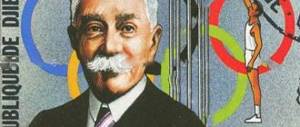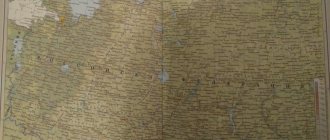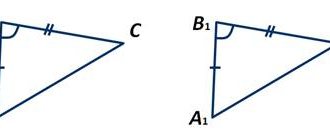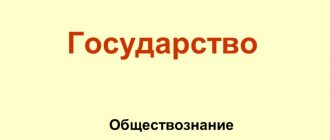Lesson summary Olympic Games history lesson plan (grade 5)
Basic lesson summary.
Lesson topic: “Olympic Games in ancient times”
Lesson type: combined.
Targets for achieving results:
— personal: Evaluate your own and others’ actions. Assess the importance of sport for the formation of a healthy lifestyle.
- meta-subject: (regulatory): be able to correctly and rationally use class time, determine the stages and ways of independent activity. Determine the goal, problem in educational activities. Evaluate the extent and methods of achieving a goal in a learning situation.
(communicative): establish correct, working relationships in the group, answer questions posed specifically and clearly; (cognitive): define concepts, make maximum use of the textbook text, analyze the document, find the necessary information, highlight the main thing and draw conclusions.
— subject: To acquaint students with the history of the Olympic Games in ancient times and show their significance in the life of Ancient Greece. Continue to develop the ability to work with the textbook text and its illustrations, highlighting the main thing. Expand the horizons of students, emphasize the peacekeeping role of the Olympic Games.
Training equipment:
multimedia projector, screen, textbook, notebook.
During the classes:
- Organizational block.
- Updating the basic knowledge of students and preparing them for the perception of new material.
Slide. Three portraits: Solon, Themistocles, Pericles. – Before us are famous figures of Greece. Who were we talking about in the last lesson??
What made these figures famous?
2. Testing students' knowledge (5 min.)
Answer the yes/no questions in writing: (to be done on a separate sheet)
1. Was Ancient Greece located on the Balkan Peninsula? YES
2. Is Greece washed by the Red and Black Seas? NO (Ionian and Aegean)
3. Aristophanes - the creator of the poems “Odyssey” and “Iliad”? NO (Homer)
4. Did the Greeks believe that their main gods lived as large families in luxurious palaces on top of Mount Olympus? YES
5. Is the polis the council of the nobility in Athens? NO (city-state)
3. Updating students’ basic knowledge and preparing to perceive the material (3 min)
Teacher: And now we are moving on to studying a new topic, “Olympic Games in Antiquity.” (Slide 1) What would you like to know about the Olympic Games?
In our lesson today you will find out when the very first games took place? Who took part in them? how did they go?
In the workbook, students write down the date and topic of the lesson.
But before we begin our work, I would like to draw your attention to the question that is presented on the next slide of the presentation. (Slide No. 2.) Listening carefully to the teacher’s story, conducting your own research, completing the assigned tasks, by the end of the lesson you should answer the question: What facts support the idea that the Olympic Games were a favorite pan-Greek holiday?
4. Main part. (20 minutes)
Teacher's word: So, let's move to Ancient Greece. Each Olympic Games began with the call: “Everyone to Olympia! Sacred peace has been declared, the roads are safe! May the strongest win!” (slide 3).
On your own, find in the text of the textbook when the first Olympic Games took place?
The first Olympic Games took place in 776 BC. (entry in notebook) (Slide No. 4,5). They were held once every 4 years, took place in the summer and lasted 5 days.
(Slide 6.7) The Olympic Games are regular pan-Greek sports festivals in honor of the god Zeus. Olympia was chosen as their venue because... it was easily accessible from all Greek cities. This city was located in southern Greece, in the northwestern part of the Peloponnese peninsula. There was a temple of Zeus, the main god of Ancient Greece. While the competition lasted, wars ceased and a sacred truce was declared. This made the roads to Olympia safe. At the same time, peace negotiations were held between the warring parties who wanted to resolve conflicts.
?? Why were the Olympic Games held in honor of the god Zeus?
The ancient Greeks had a myth about the founding of the Olympic Games, let's get to know it. (Slide 8 - Zeus.)
Annex 1.
(Slide 9) Carefully read the myth telling about the history of the Olympic Games. And highlight the reasons for their appearance.
Students make assumptions, prove their point of view, the teacher corrects their answers and highlights the reasons, which are written down in a notebook.
(Slide 10) The main reasons for the appearance of the Olympic Games: writing in a notebook
1) worship of the gods;
2) the desire of the inhabitants of Greece to show strength and dexterity.
Teacher:
— When studying this topic in the text of the textbook, you will come across new concepts (words).
Slide No. 11 - students become familiar with words, determine the meaning of these words with the help of the teacher and pronounce them. Write it down in a notebook.
Olympia is a town in southern Greece, the site of the Olympic Games.
An athlete is a participant in competitions, a person of strong physique.
Pentathlon - five types of sports competitions.
A hippodrome is a place for horse racing.
Olympionik – winner of O.I.
—Who was their participant? Students' guesses. Student answers.
(Slide 12) All free Greeks could take part in the competition. However, women were forbidden to be present even as spectators. The Olympic Games were dedicated to Zeus: it was a purely male holiday. Of the women, only the priestess of the goddess Demeter could attend the games.
Question for students:
- Guys, tell me, could everyone afford not to work and train for long months?
Student: Only the rich. Poor people had no money and needed to work to feed themselves and their families.
Teacher:
Only men and teenagers were allowed to attend the Olympic Games. Married women were not allowed to attend the Games on pain of death. Only once was this rule broken. Who could take such a risk?
(Handouts on desks)
This was the legendary Ferenice, a woman whose father, brother and husband were Olympic champions. She trained her son herself and, driven by the desire to see him become a champion, she went with him to the Games. The coaches stood separately on the field, watching their players. She changed into men's clothes and stood next to them, watching her son with excitement. And so... he is declared champion! The mother could not stand it and ran across the entire field to be the first to congratulate him. On the way, her clothes fell off, and everyone saw that there was a woman in the stadium. The judges were in a difficult position. According to the law, the offender must be killed, but she is a daughter, sister and wife, and now also the mother of Olympic champions! She was spared, but from that day on a new rule was introduced - now not only athletes, but also coaches must stand on the field completely naked to prevent such situations.
Teacher:
The Olympic Games took place in the summer and lasted six days.
Teacher: And now, we will look at illustrations of archaeological finds. (slide 15-18) These are vases and drawings of the ancient Greeks. Your task is to find out what types of sports competitions were in Ancient Greece.
Assignment: Look carefully at the pictures, think and tell me, what sports did the ancient Greeks compete in?
Slide 19) One of the main competitions of the Olympic Games was the pentathlon. It started with running. Standing on the track next to each other, the athletes waited for the signal. Anyone who took off ahead of time was hit painfully by the judge with a whip. Incredible things were said about the speed of the runners. There was one runner who was seen at the beginning and end of the track, but in the middle there was no time to notice him.
After running, the athletes competed in the long jump. To enhance the push, the athletes used weights and threw their arms forward during the jump.
The spear and disc were thrown while standing on a small hill. The spear was thrown for accuracy, and the disc flew for distance. Historians associate discus throwing with the ancient ritual of sun worship. The disc was considered a sacred object. The statue of the sculptor Myron “Disco Thrower” is dedicated to this sport. (Slide 20)
The last competition in the pentathlon was wrestling. Where the strength and dexterity of the wrestlers was demonstrated. It was carried out on the sand. Before it began, athletes rubbed their bodies with olive oil to make it more difficult for their opponents to grab it. To win, the fallen opponent needed to touch the ground three times with his shoulder, hip, or back.
Also of interest to the audience were fist fights, running with weapons, and others.
The most exciting spectacle was the chariot races. They took place at the hippodrome - a place for holding equestrian competitions. Only rich Greeks participated in the races, since not everyone could afford to have a chariot and four racing horses. During the races, the chariots had to circle the hippodrome 12 times. Sometimes the chariots collided and the charioteers (driving the chariots) were injured. In this case, the owner of the team could not drive it himself, but hire a driver. But, if the horses came first, then it was the owner of the team, and not the charioteer, who was awarded the victory. (Slide 21)
Guys, in Ancient Greece, before competitions, athletes did a warm-up, let's get up and warm up (1 min).
It's time to find out the answer to the question about the winners of the Olympics. (slide 22).
On the fifth and final day, a table made of gold and ivory was placed in front of the temple of Zeus. There were awards on it.
What do you think?
The winners were rewarded with wreaths made from olive branches. The winners, one after another, approached the chief judge and received their well-deserved awards. The herald announced the name of the athlete and named his hometown, and the spectators enthusiastically shouted: “Glory to the winner!”
Write it down in your workbook.
Teacher: Our acquaintance with the history of the Olympic movement is coming to an end. It's time to remember the question that was asked at the very beginning of our lesson. What facts support the idea that the Olympic Games were a favorite pan-Greek holiday? Organization of educational discussion. - dedicated to the gods, peace was declared, residents of all Greece gathered, 11 months of preparation, victory not thanks to the powers, but to the providence of the gods, seats in the audience were occupied at night, etc.
Solve the problem: An ancient writer said that shortly before the start of the Olympic Games, the Spartans besieged a city hostile to them. The news of this spread throughout Hellas, and the Spartans were banned from participating in the games for 20 years.
What custom did the Spartans break? It was forbidden to fight during the games.
How many Olympic Games were they not allowed to compete in? The Spartans did not participate in five Olympic Games.
5. Consolidation of the studied material. (13 min)
Appendix No. 3
Independent work with self-test according to the standard
You will certainly agree that humanity owes a lot to Ancient Hellas. Science and literature, theater and architecture, the art of sculpture and music flourished on its land... But the ancient Greeks most of all valued harmony, perfection of mind, soul, and body in man. It is not surprising that sport, in our understanding of the word, also originated on the soil of Ancient Greece.
I am convinced that you have mastered the material of the new topic well. I thank you for your active work in class, your ability to listen, reason, make assumptions, and draw conclusions. I would especially like to mention the work... which received good and excellent grades. I wish everyone else not to despair, your excellent grades are yet to come.
6. Homework: (2 min)
Mandatory: paragraph 31 answer the questions orally,
Optional: prepare reports about the legendary athletes of Ancient Greece; and about the history of the modern Olympic Games; come up with a story on behalf of an Olympic Games spectator. (slide 24)
Reflection (slide 25) – task: on the pieces of paper distributed by the teacher, mark the emoticon that corresponds to your assessment of the lesson:
- understood a lot, learned a lot
- I am satisfied with my work in class
- how little I know, I have a lot to learn





